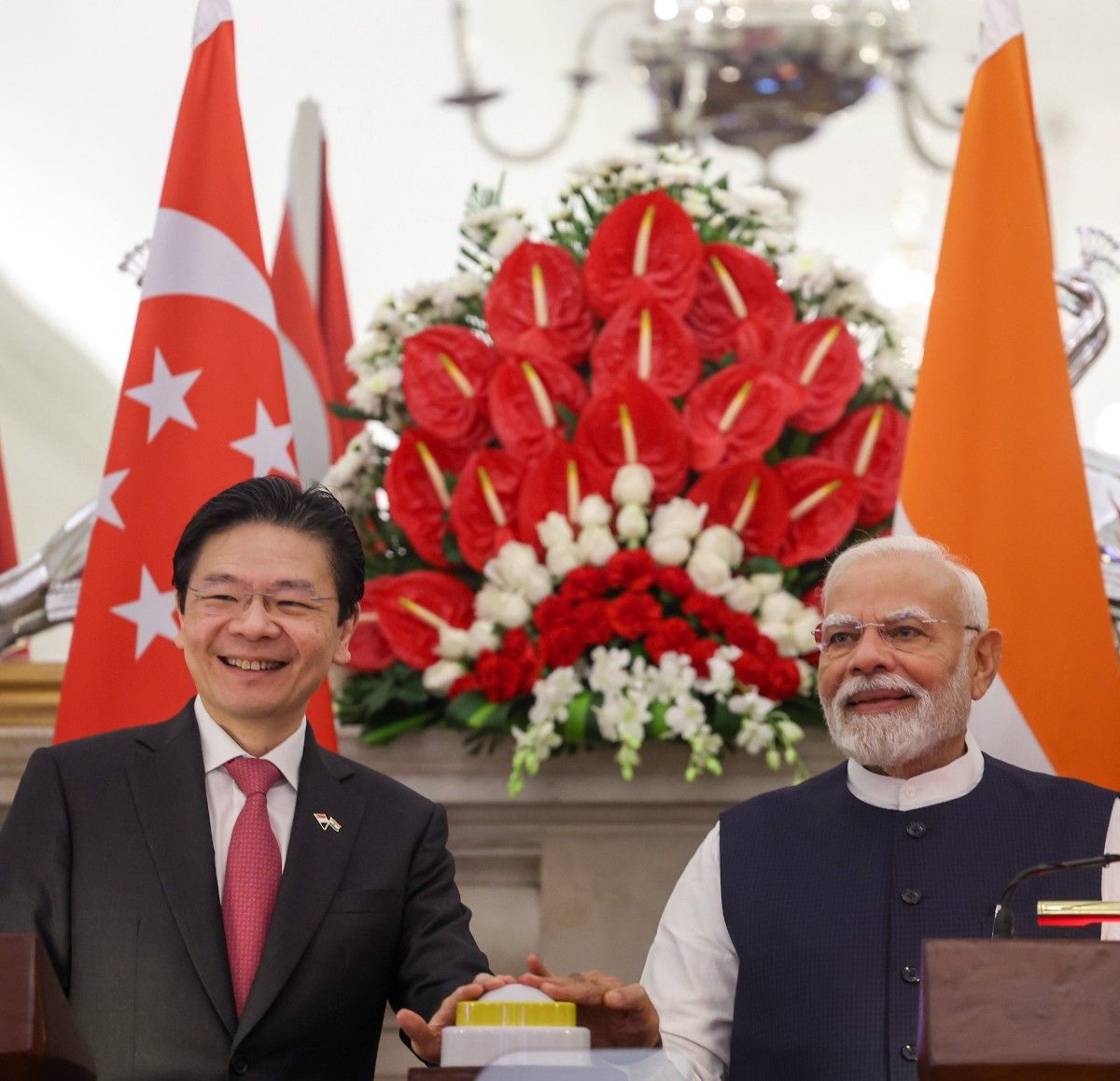
PM Modi, Singapore PM virtually inaugurate JN Port – PSA Mumbai Terminal (BMCT) Phase-II
NAVI MUMBAI: Prime Minister Shri Narendra Modi, along with Singapore Prime Minister Lawrence Wong in the presence of Union Minister of Ports, Shipping & Waterways Shri Sarbananda Sonowal on Thursday virtually inaugurated the second phase of the PSA-operated Bharat Mumbai Container Terminal (BMCT) at the Jawaharlal Nehru Port here.

On the sideline, Shri Sarbananda Sonowal signs a MoU with Jeffrey Siow, Acting Minister for Transport of Singapore, on Green & Digital Shipping Corridor in the presence of Hon’ble PM Shri narendra Modi ji and Singapore PM Lawrence Wong. A landmark step that will strengthen green fuel supply chains, digital port clearances and sustainable shipping for a cleaner future.
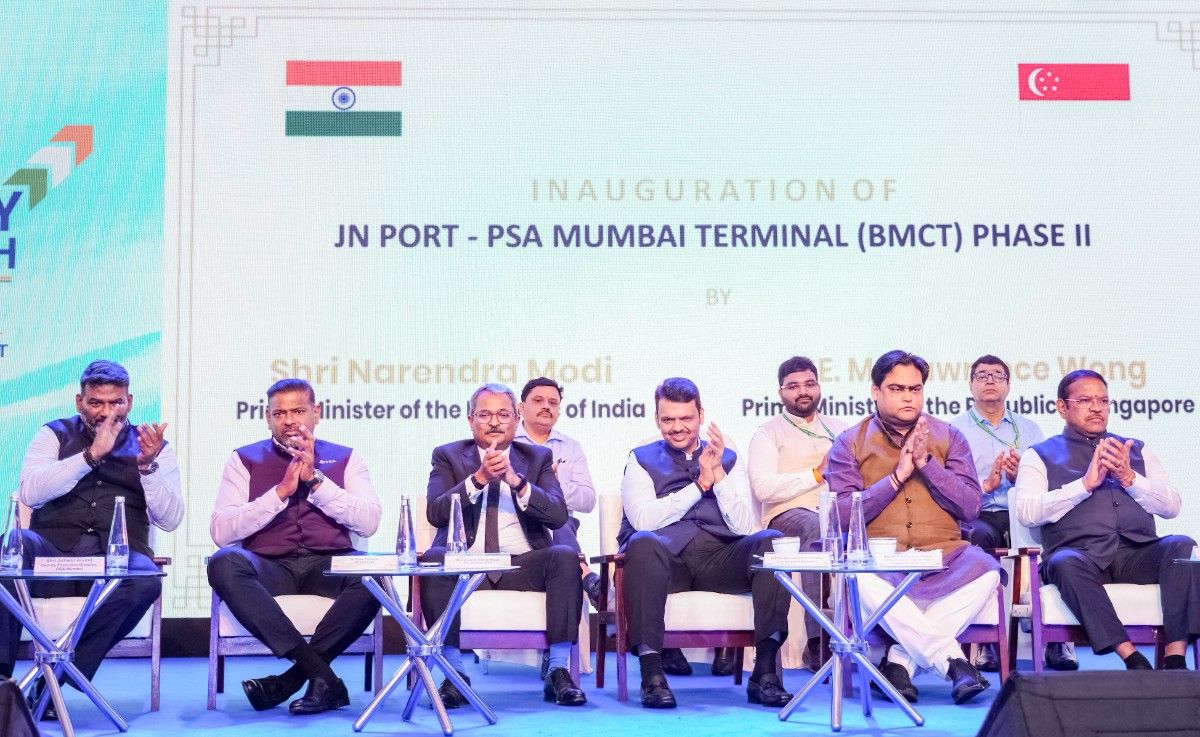
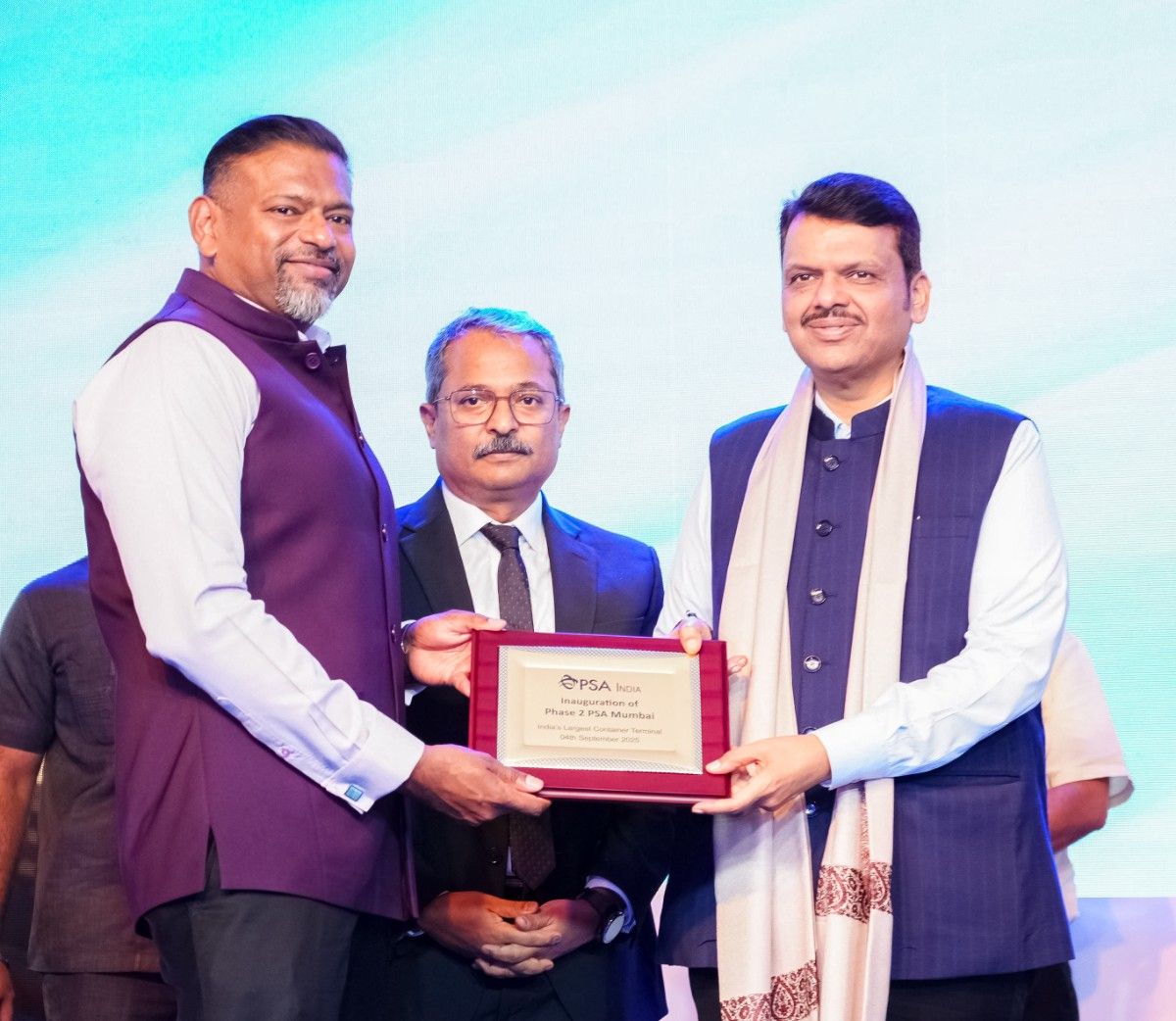
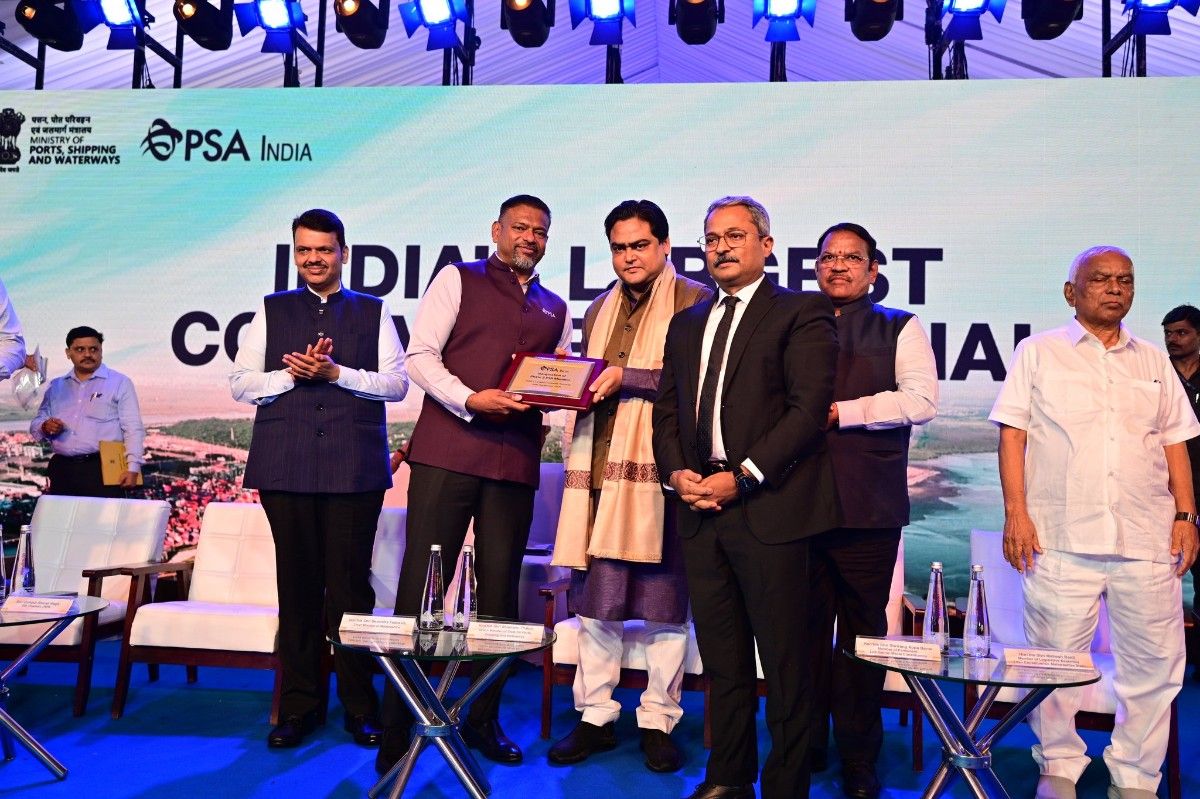
At the port, the event was attended by Minister of State for Ports, Shipping and Waterways Shri Shantanu Thakur, Maharashtra Chief Minister Shri Devendra Fadnavis, JNPA Chairman Shri Unmesh Sharad Wagh and Managing Director PSA India Mr. Gobu Selliaya among others.
Following this, the terminal’s total container handling capacity would stand at 4.8 million TEUs from 2.4 million TEUs earlier.
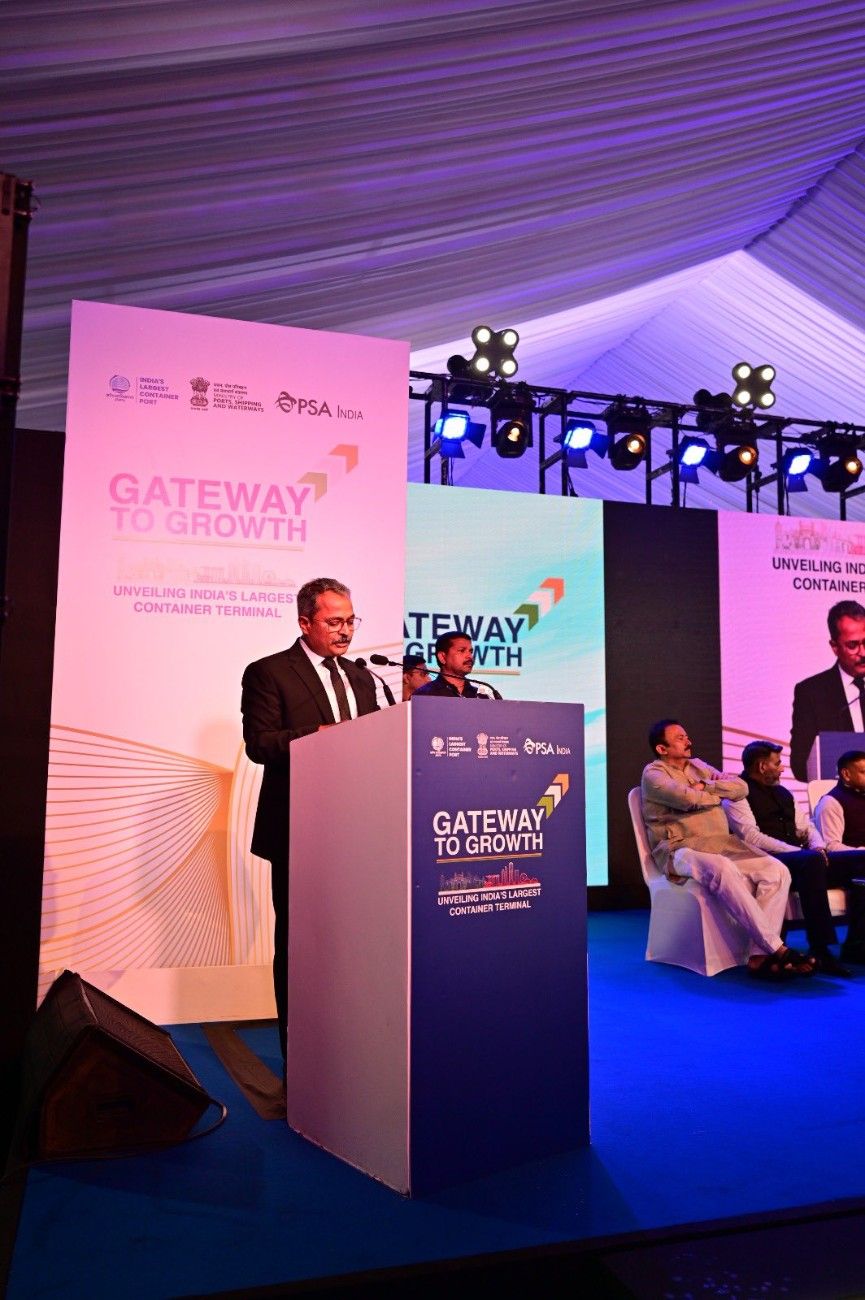
At the inauguration, JNPA Chairman Shri Unmesh Sharad Wagh said that the country’s premier container port , Jawaharlal Nehru Port, is looking at allowing Ro-Ro (Roll on/Roll off) service from its facility for efficient vehicle transportation.
The country’s premier container port handles five major dedicated container terminals operated by global market leaders with a deep draft of 15+ metres, with the capability of handling 18,000 TEU vessels.
“We are also thinking of starting a Ro-Ro service. The exporters (car makers) have sought permission, which are pending due to certain issues. We are discussing those issues with them,” Wagh said on the sidelines of the event.
He said that the Port is “very keen” to give them permission for these services, as there is a lot of demand, adding that currently these export vehicles come to Mumbai from Pune, and have to travel an additional distance besides congesting the city’s roads.
On the expansion, he said, “We require capacity as our trade and economy are growing, which requires a lot of ports. The expansion of this terminal is an important milestone for us in achieving the Prime Minister’s vision of port-led development.
The 100 per cent renewable energy terminal, PSA Mumbai Terminal is the first container terminal port with DFC (dedicated freight corridor)- compliant with six rails and 8 RMGs (rail mounted gantry) and efficiency in handling 18000 TEUs, according to JNPA.
The terminal has also received USD 1.3 billion FDI, the largest, under a PP model, providing connectivity to over 63 ICDs – via road and rail, as per the port operator.
Over almost three decades, PSA has invested a total of USD 2.3 billion in India, of which more than half is in BMCT, Singapore Deputy Prime Minister had said during a visit to the JNPA last month.
JNPA handles 54 per cent of the containerised cargo across all major ports of India.
Wagh also said that JNPA has already crossed 10.1-million TEUs capacity, and expressed hope that the facility will be handling this much capacity in the next two years.
“We think that our capacity should be ahead of our requirement. Last year we handled 7.3 million TEUs, while this financial year it will be 8 million TEUs. Even after having this much capacity, we are sure that we will handle over 10 million TEUs in the next two years in JNPA itself. That is the growth India is witnessing,” he said.
Wagh also sounded confident that the JNPA will just be a 100 per cent green and shore-power-compliant facility in the next two years but also be able to reduce its turnaround time by at least 20 per cent during this period.

